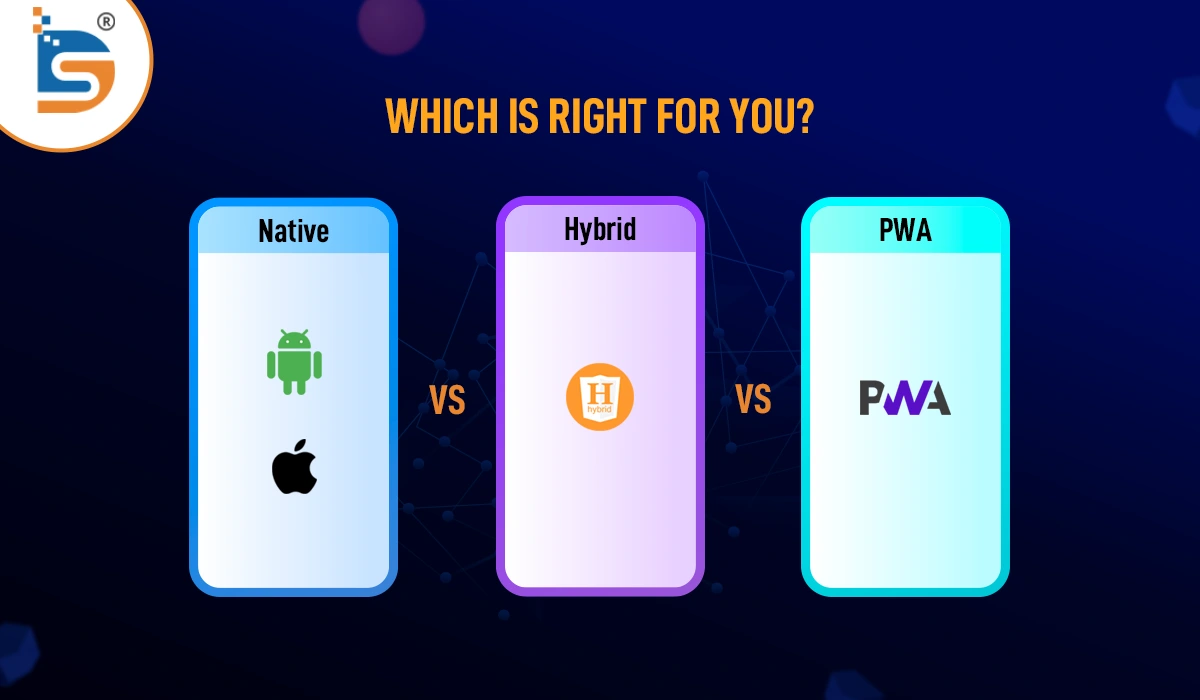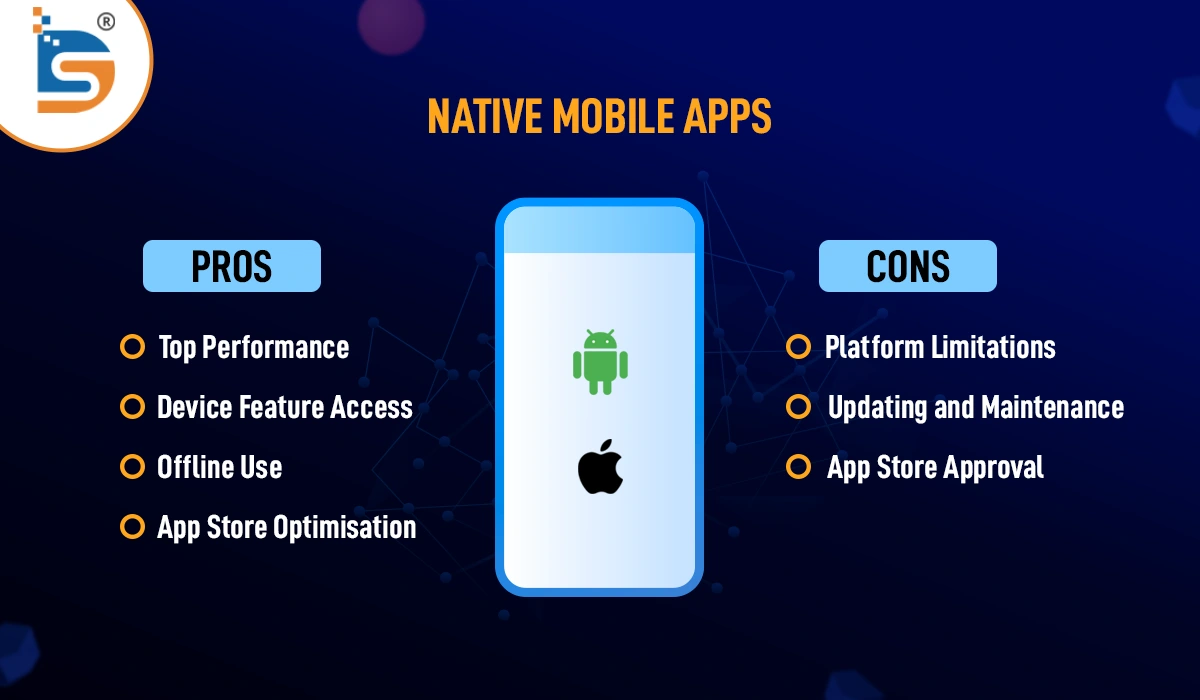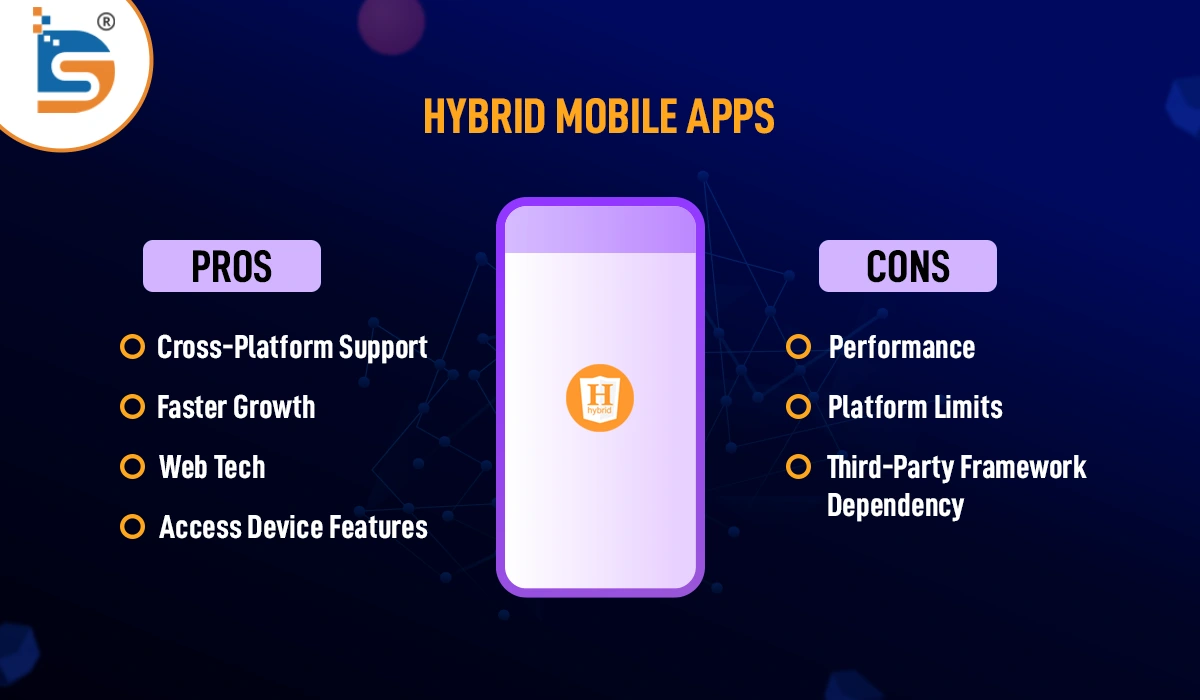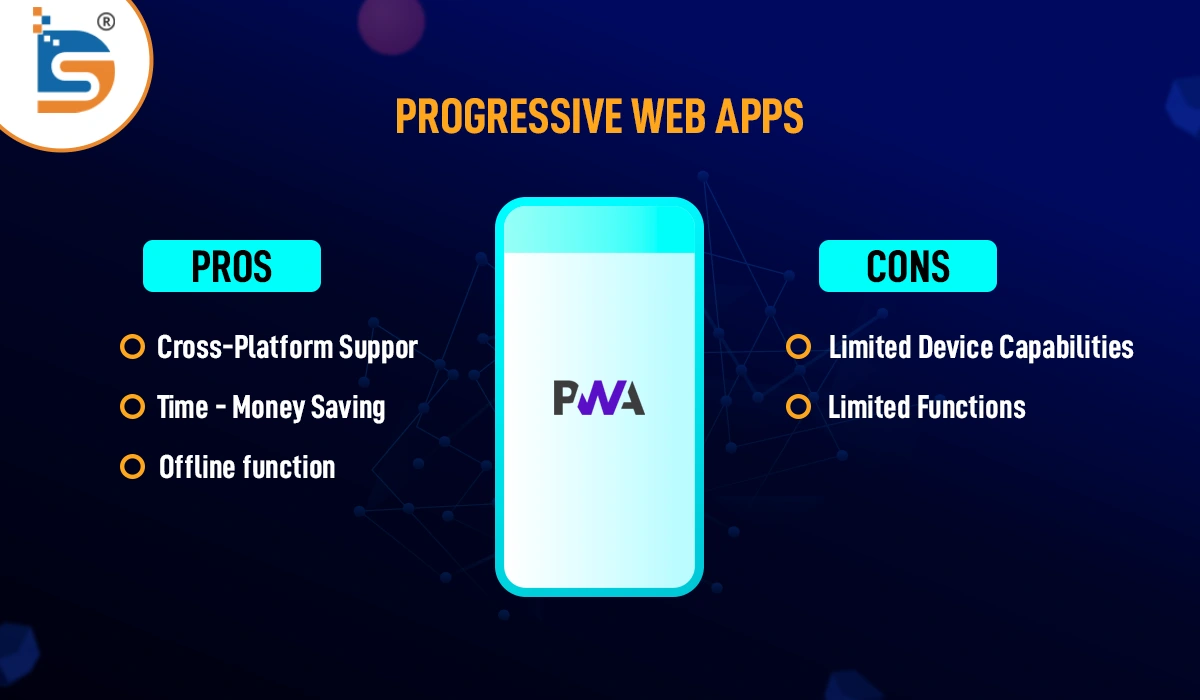Native App, Hybrid App, or PWA: Which is Right for You?
BY : Sdreatech
19-Feb-2024

Are you confused about choosing the right type of mobile app for your business? When it comes to developing a mobile app, businesses are often faced with a difficult decision: a native app, a hybrid app, or a progressive web app (PWA) ?
But don't worry. In this article, we will help you make an informed decision. and guide you in deciding which app is right for you and your business.
Learning about mobile Apps types, pros, and cons
Native Mobile Apps
Native apps are created especially for an operating system, like Android or iOS. Each platform has its own programming languages and tools. As a result, native apps may fully use all of the features and functionalities of the operating system.
Native apps are installed directly on the user's device and can be accessed from the home screen. They have the ability to work offline and provide a smooth and responsive user experience. Native apps may use cameras, GPS, and push notifications for greater functionality.
Pros of Native Mobile Apps
1. Top Performance
Native apps integrate with the operating system, improving load times and the user experience.
2. Device feature access
Native apps have direct access to cameras, microphones, GPS, and more, improving functionality.
3. Offline Use
Native apps can save data locally, allowing offline access to features and information.
4. App Store Optimization
Native apps can be optimized for app store visibility and discoverability to reach more people.
Cons of Native Mobile Apps
1. Platform Limitations
It takes time and money to develop native apps for iOS and Android.
2. Updating and maintenance
Platform-specific updates and bug fixes require more time and resources.
3. App Store Approval
App launches may be delayed when native apps are submitted to app stores because of the review process.

Hybrid Mobile Apps
A hybrid app combines elements of both native and web app development, as the name implies. They are created with web technologies like JavaScript, HTML, and CSS and are subsequently packaged in a native container so that they can be installed and used on many operating systems.
Hybrid apps can be written once and operate on iOS and Android. This greatly decreases development time and expense. Hybrid apps have access to some device functionalities, but not as many as native apps.
Pros of Hybrid Mobile Apps
1. Cross-Platform Support
Hybrid apps use a single codebase for several platforms, saving time and money.
2. Faster Growth
A hybrid app takes less time and effort than native apps for different platforms.
3. Web tech
Hybrid apps use web technology, making development and maintenance easier.
4. Access Device Features
Plugins allow hybrid apps to use device functionalities.
Cons of Hybrid Apps
1. Performance
Hybrid apps may perform poorly for complicated or resource-intensive programs.
2. Platform Limits
Some device functionalities may be inaccessible in hybrid apps, restricting functionality.
3. Third-Party Framework Dependency
Many hybrid apps use third-party frameworks, which can cause compatibility and security issues.

Progressive Web Apps (PWA)
Web apps that can be viewed in a web browser are called Progressive Web Applications, or PWAs. Web technology constructs them to function on various platforms and devices.
PWAs combine website and app benefits. They give users a similar experience to native apps and can even be put on the home screen. Offline accessibility and push alerts are other benefits of PWAs.
Pros of Progressive Web Apps (PWA)
1. Cross-Platform Support
PWAs are compatible with both desktop and mobile devices, as long as they have a current web browser.
2. Time - Money saving
Due to their single codebase, PWAs are cheaper and faster to develop.
3. Offline function
Offline PWAs provide a flawless user experience even without internet.
Cons of Progressive Web Apps (PWA)
1. Limited device capabilities
As web applications, PWAs may not have access to all device functionalities, limiting their possibilities.
2. Limited Functions
PWAs are better for simpler apps than native apps because they have fewer features.

Factors to Consider When Choosing the Right Mobile App Type
You may improve customer satisfaction and business growth with a well-designed and user-friendly mobile app. Due to the abundance of app possibilities, choosing the correct mobile app for your needs might be difficult. To help you choose the best mobile app type, we've compiled a list of key factors here.
1. Business needs
Understanding your business needs is vital when choosing an app. Consider what features and functions your app needs to achieve your business goals. A native app may be ideal for offline or advanced device features. A hybrid or PWA may be best for cross-platform compatibility and cost.
2. Target Audience
The kind of app depends on your audience. Consider the platforms and devices your audience uses most. A native app may be ideal for iOS users. However, a hybrid, or PWA, can provide a consistent experience for a diversified audience across platforms.
3. The budget
Selecting an app type requires consideration of the budget. Each platform requires independent development, making native app development more expensive. Due to their single codebase, hybrid and PWA development can be cheaper.
4. Required features
Thoughtfully consider the specific functions and features you desire for your app. Native apps offer the most device functionality and performance. Hybrid apps combine native and web technologies, while PWAs are browser-accessible.
5. Long-term plan
Consider your long-term app strategy. If you want to expand to additional platforms or add functionality, a hybrid or PWA may be better. Long-term time and resource savings.
Final thoughts
Choosing the correct mobile app type for your business is important. Assessing your business needs, target audience, budget, and desired features will help you make a decision that meets your goals.
There is no universally applicable mobile app development solution. This may not work for another business. You must assess your app's demands and prioritize them.
You must provide a smooth user experience that satisfies audience expectations, whether you employ a native app for optimal performance, a hybrid app for cross-platform compatibility, or a PWA for the best of both worlds.
So, consider your options, contact experts, and make a decision that positions your business for mobile app success. If you want to know more about mobile apps, then click here